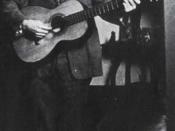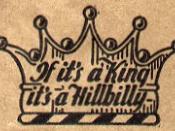The Man Behind the Pun I am often dismayed when I hear people say "a pun is the lowest form of humor" because I see them using the word lowest with the wrong connotation. It all goes back about 600 years ago to my ancestor, Punster Lowe, who combined the use of wit and language into an art form. His deft use of language soon became the standard to the extent that when people said "That's really Lowe!" or "You're the Lowest," everyone understood the meaning of "Lowe-est" as expressing praise, just as "bad" or "baddest" in modern times represents approval (high praise). In other words, back then, lowe was really high! The word "pun" to describe language used in a quick and witty way to connect two different kinds of meanings of the same or similar word is actually a direct derivative of Punster's name. (Don't bother pulling out your Funky Wagnall's to check the etymology - the revisionists have been very thorough in trying to squash out such marginalized voices.)
In fact, Punster was so famous that the king became jealous of his popularity. At one point the king was so outraged that the people were going to Punster first to hear his reactions and comments on events that some of the king's spies tried to entrap Punster into publicly slandering the king. They suggested they could come up with topics that he could not make clever comments on.
"I can respond on any subject," replied Punster.
"Okay, what about the king?" "The king," retorted Punster, "is not a subject!" Finally, the king called Punster forward in front of a gathering of the general populace during the general Spring Festival. His plan was to publicly disgrace Punster and restore the line of authority to what he felt should be the proper order. Fortunately, the scribes of the day chronicled the event, and the record has been preserved in our family archives, in spite of the efforts of the historical revisionists.
I feel it is time to make the actual history a part of the public record rather than apart from the public record. According to the ancient scrolls the events occurred thusly: The king stood on the public platform with Punster at his side and declared for all to hear and witness, "Let it be known and understood by all that you are nothing, and I am your king. Is that clear?" "Yes," Punster replied, "You are the king of nothing." "Aargh!" exclaimed the king, "Your intelligence is next to that of an imbecile!!" "Would you like me to stand further away from you?" quipped Punster.
At this point, the king had had enough and ordered Punster to be summarily executed the following morning. Punster was bound and gagged before he could make any comment about it being Spring and the king would have to wait a few months before any Summerly executions.
The next morning, as Punster stood at the gallows with the rope around his neck, the king gave him a final opportunity for reprieve. He would spare Punster if he would promise to curb his wit in deference to the king's dignity.
To which Punster replied, "No noose is good noose." And they hanged him.





